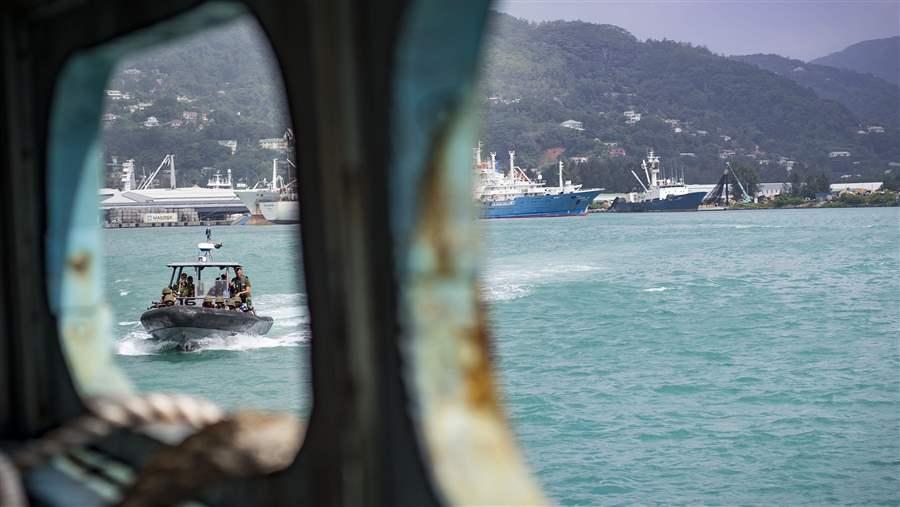Off of East Africa, Military Forces Join Fight to End Illegal Fishing
Annual exercise shows how cooperation can stop a range of maritime crimes

The view from a target vessel as Comorian coast guard commandos approach. Trainees are taught standard procedures for approaching and boarding suspicious boats, and for searches and seizures.
U.S. Navy photo by Mass Communication Spc. 3rd Class Ford WilliamsWestern Indian Ocean coastal nations continue to struggle to control illicit maritime activity, including illegal fishing, which accounts for up to 1 in 4 fish caught in the region. Authorities often lack adequate ways to collect information on suspected illegal activity or the capability to take enforcement actions when they detect it.
To help address those issues, the U.S. Defense Department’s Africa Command and European, Canadian, and Australian forces recently led a training exercise to help nations synchronize the detection of and respond to suspicious activity. The annual exercise, called Cutlass Express, brings together African partner nations to strategize, train, and synchronize efforts around potential real-world scenarios.
In February, I was fortunate enough to be part of the exercise and saw the navies and coast guards from Mozambique, Madagascar, Kenya, Tanzania, Comoros, Djibouti, Mauritius, Seychelles and Somalia working together to improve safety, security, and freedom of navigation in African waters. Pew’s ending illegal fishing project was invited to the exercise to bring fisheries enforcement expertise and on-the-water experience.
Here are some photos from the Cutlass Express exercise.





















